Improving environmental hazard assessment
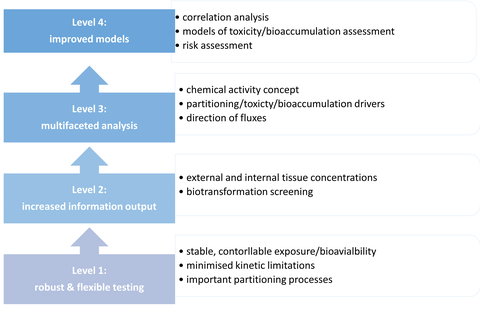
Strategies to improve chemical hazard assessment
Improving hazard assessment. The amount of chemicals released into the environment grows at staggering pace impacting water quality, biodiversity and stability of ecosystems. The assessment of the associated hazard is a great challenge. This project aims to re-design current testing strategies to increase throughput and decrease susceptibility to experimental artefacts. Simultaneously, it seeks to increase the information output to provide not only indicators of toxicity/bioaccumulation but also information on modes of action, transformation products and (a)biotic partitioning
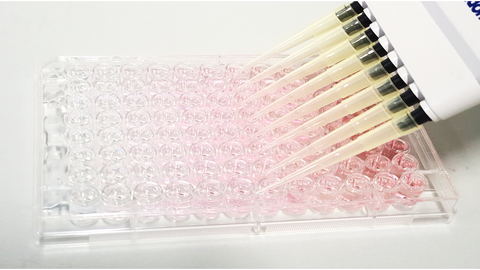
Investigations into modes of action of ionic compounds
Ionic compounds are much less understood in their environmental behaviour than neutral chemicals as the spectrum of interactions they are capable of is wider. It is still unclear to what extent is the ionic character is influencing their toxicity, bioaccumulation, bioavailability and partitioning. The aim of this project is to understand the environmental partitioning and hazards of ionic compounds using mode of toxic action screening and advanced analytic techniques combined with established toxicity tests.read more
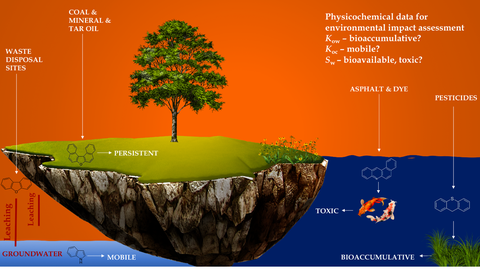
N/S/O-PAHs sources and hazards
Heterocyclic aromatic compounds are ubiquitous in all environmental compartments but their environmental hazard and fate are poorly investigated. The aim of this project is to systematically examine toxicity, biodegradability, bioaccumulation potential and mobility of N/S/O-PAHs especially in comparison to their homocyclic equivalents (PAHs). Furthermore, the validation of mathematical models used for environmental hazard screening will be performed. read more.
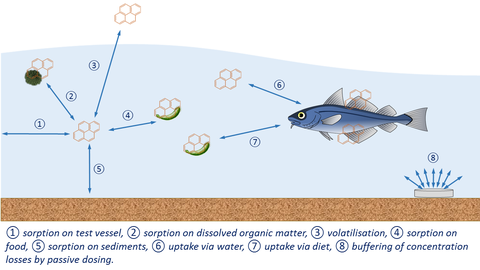
Counteracting losses of highly hydrophobic compounds by passive dosing
Hydrophobic organic compounds are poorly soluble in water, often adsorb on the test vessels or minimal amount of organic matter that is present in the test system. Therefore obtaining reliable experimental data is very challenging as toxic effects or the lack of thereof cannot be clearly linked to the nominal dose. The aim of this project is to modify testing strategies to deal with such experimental challenges and deliver versatile high quality data. Additionally, the influence of the environmental matrix (especially dissolved organic matter) is to be investigated. read more.
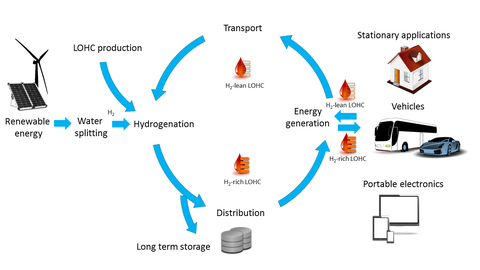
LOHC cycle
Liquid Organic Hydrogen Carrier (LOHC) systems are a novel but very promising option allowing for safe and efficient storage and transport of hydrogen. There are several LOHC systems that could be applied on wider scale yet the choice has not been made yet. The potential environmental consequences of widespread use of LOHC systems are still unknown. The aim of this project is to perform proactive environmental hazard assessment of potential LOHC candidates to support the choice of the least hazardous system. read more.
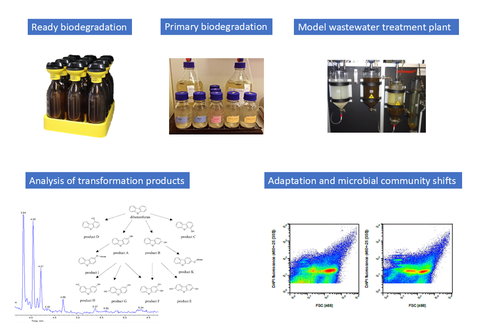
Assessment of biodegradability
Biodegradable substances break down in the environment through the action of microorganisms, preventing their long-term accumulation in ecosystems and human exposure. Biodegradability assessment is important for environmental safety evaluation, ensuring regulatory compliance and developing sustainable chemicals. Non-biodegradable (persistent) chemicals pose a risk to humans and ecosystems and their use should be avoided. The project aims to understand how and why organic compounds degrade or persist in natural and urban water environments. read more
